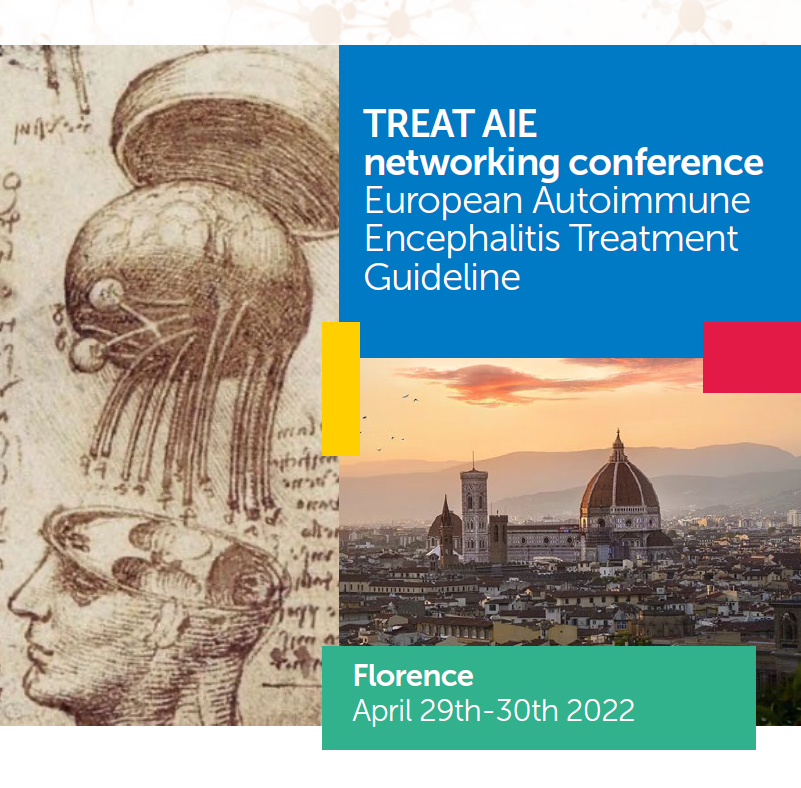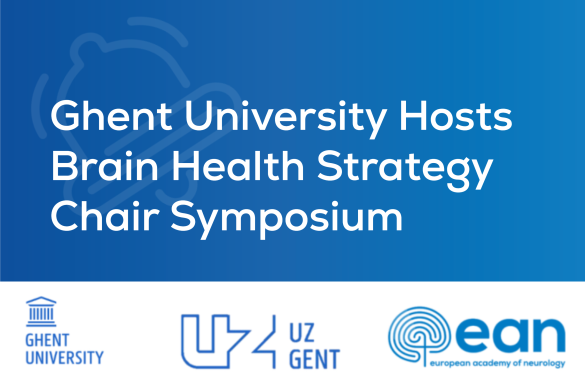
TREAT AIE, the first European networking conference to provide guidelines and improve treatment of Autoimmune Encephalitis, takes place in Florence, Italy on 29-30 April (with online participation also available), supported by the European Academy of Neurology (EAN), the European Joint Programme on Rare Diseases (EJP RD, network support scheme) and the Careggi University Hospital, Florence
At this conference, fifty experts from fourteen European countries will convene to foster collaboration and improve the future of Autoimmune Encephalitis (AIE).
AIE are a group of severe, but treatable immune mediated diseases of the brain. Although the frequency of each specific AIE is low, as a group these diseases are less rare. As many AIE types have only been discovered over the last decade, it is increasingly recognised, but underdiagnosis is still likely. AIEs occur at all ages, consequences can be severe and persistent. As hospital admission is often long, these diseases place a heavy burden on healthcare systems.
Diagnostic criteria for AIE were proposed in 2016 by an international, European-led team. This advancement has improved the clinical characterisation and frequency of diagnoses. In addition, it has allowed earlier diagnosis and treatment. This is essential to minimise brain damage, improve neurological outcomes, and prevent relapses. It has also improved treatment efficacy to an extent to frequently allow curative interventions. However, the rarity of each AIE entity has thus far prevented development of evidence on treatment efficacy based on high quality studies such as randomised clinical trials. Therefore, most treatments are based only on expert opinion or on low quality studies, like retrospective case series.
A task force of experts has been established, endorsed by the European Academy of Neurology, to create a guideline on management of AIE. While providing the research to make this treatment guideline, the task force has identified several knowledge gaps. In this networking conference, next to discussing the progress of the treatment guideline, the task force will also discuss the state of the art of AIE, including history, the use of brain imaging, and blood and brain fluid biomarkers. Importantly, the networking conference has the additional goal, supported by the European Joint Programme on Rare Diseases (EJP RD), of creating further European collaboration: TREAT AIE.
The aims of this collaboration – beyond treatment guideline development – are standardisation of data, sharing of databases, and creation of a European framework database, leading to fruitful research collaborations. The pitfalls and challenges will be discussed, but by working towards harmonisation, this will lead to uniformity of cohort descriptions, enabling comparative research. Prospectively, this will improve the quality of the studies and enable randomised controlled trials on treatment efficacy. Altogether, this endeavour will improve diagnosis and treatment of patients with AIE in the whole of Europe and beyond. It will also reinforce European research at the front line in the field of rare neuroimmunological diseases.
The conference is open to attend online by people from outside the expert group. The presentations include (among others) presentations by Ava Easton, director of the Encephalitis Society, a UK-based patient society, and Josep Dalmau, the neurologist who discovered many of the AIE currently known. The breakout sessions, discussing the progress of the guidelines, and the reports of the breakout sessions to the plenary expert group will not be open to the public as these are restricted to the expert group only.
The programme and registration form for the TREAT AIE networking conference can be found here.
Registration is required for those interested but is free of charge. The capacity is limited to 400 persons.












